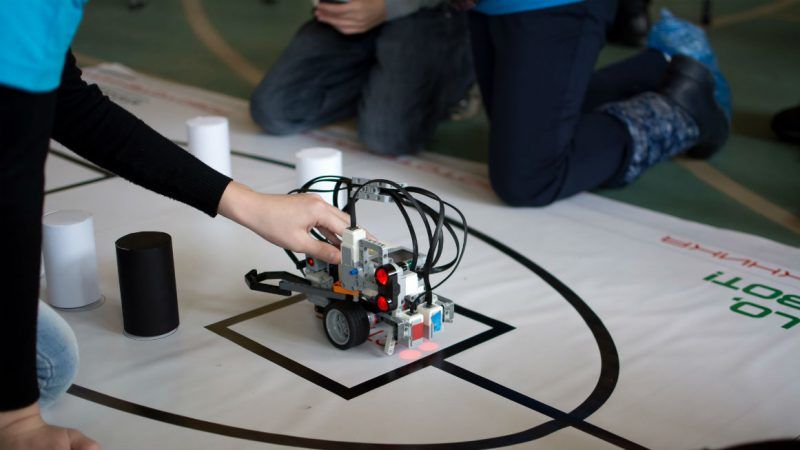A Texas School District Implements Random Drug Testing
Want to join the robotics team? You'll need to pass a drug test first.

The Bushland Independent School District in Texas doesn't have a substantial drug problem, but students as young as 12 will have to submit to drug testing if they wish to pursue their normal extracurricular activities.
Bushland students and parents have received a letter outlining the new program. Students participating in extracurricular activities or requesting a permit to park on campus will be tested at the beginning of the school year and could receive up to 10 random tests throughout the year. Under the new rules, the teams and clubs that will now require testing include "football, volleyball, cross country, basketball, wrestling, golf, track, power-lifting, cheerleading, band, choir, theatre, UIL Academics, student council, lead council, FCCLA, robotics, VASE, speech and debate, FFA, chess, Ace Club, United Way Youth Council, gaming club, yearbook, Falcon Friends and 4H."
If a student who consented to the first test then refuses to submit a saliva sample in a subsequent random test, the school will deem his or her test positive and will administer the associated consequences.
A positive test will be confirmed by a second test. Students will then have a two-day window to either challenge the results or provide a medical explanation. The district can request a student's medical history from a doctor if it wishes to verify the explanation. If the positive result stands, students be suspended from activities, practices, competitions, parking, and social events held by the school. Students can appeal the decision, but the suspensions will stand during the appellate process.
"The number one reason why we're implementing the policy is to help our students have a drug-free school," Superintendent Chris Wigington tells Reason. "We also want to take away the peer pressure—we want to give them a reason to say 'no,'" he adds, suggesting that students could use the drug policy as a way to tell peers that they're uninterested in drugs and alcohol.
According to Wigington, the district isn't facing a big drug problem. It implemented the new policy, he says, to be "proactive."
On a national level, a 2018 report from the National Institute on Drug Abuse found drug use among teenagers at one of its lowest points in 20 years.


Show Comments (30)